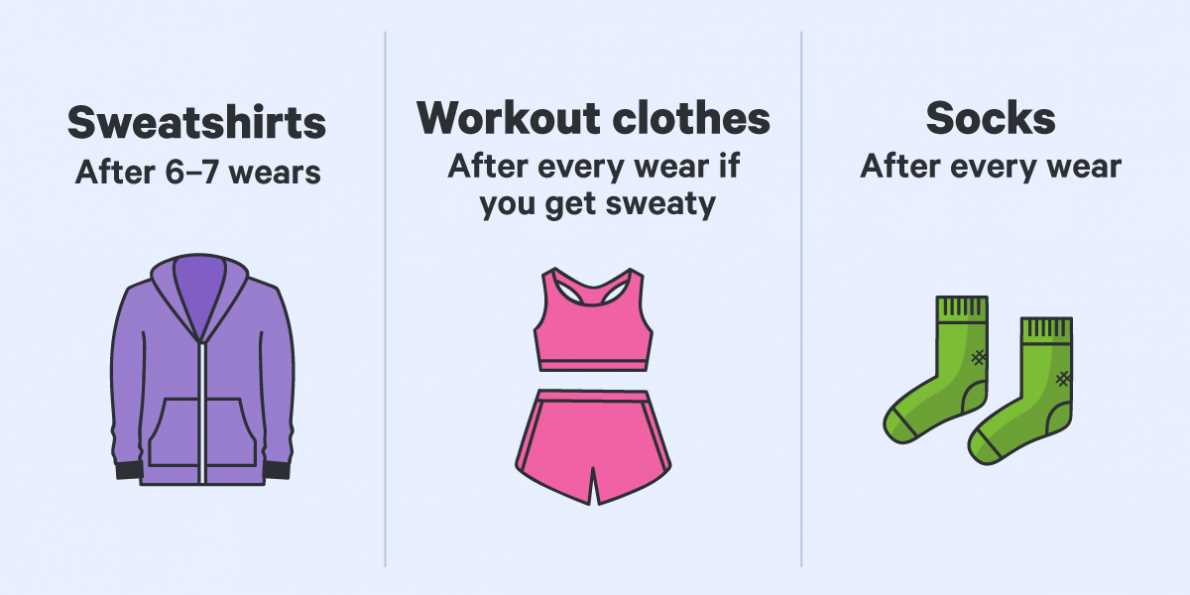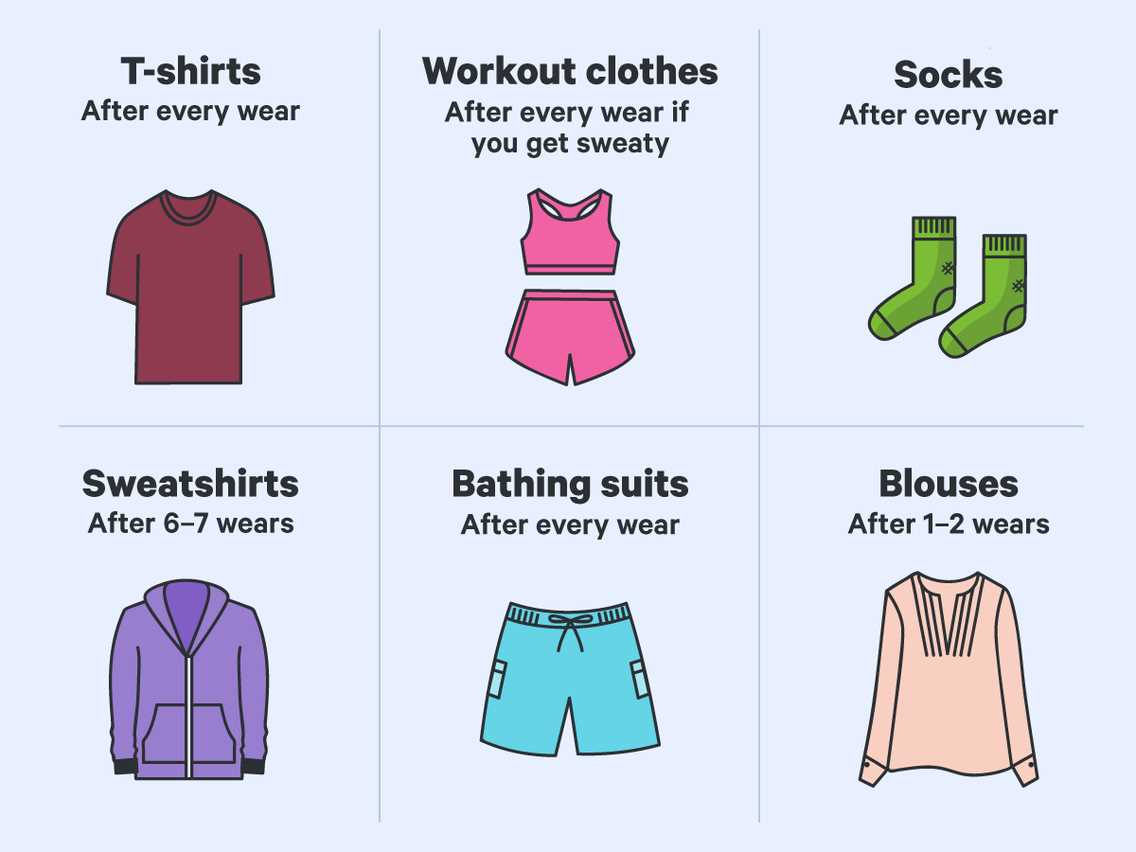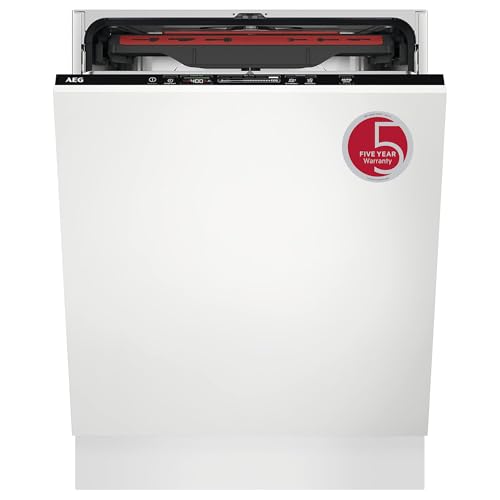




Keeping our clothes clean and fresh is an essential part of our daily routine. But how often should we actually be washing them? The answer depends on a few factors, including the type of clothing, the level of dirtiness, and personal preference. In this article, we’ll explore some general guidelines to help you determine how frequently you should be doing your laundry.
One important factor to consider is the type of clothing. Delicate fabrics, such as silk or cashmere, typically require more care and should be washed less frequently to avoid damage. On the other hand, everyday items like t-shirts and jeans can be washed after a few wears, depending on how dirty they get. It’s also worth noting that certain items, like undergarments and socks, should be washed after every use for hygiene reasons.
Another factor to keep in mind is the level of dirtiness. If you’ve been working up a sweat at the gym or have spilled something on your clothes, it’s a good idea to wash them as soon as possible. However, if your clothes haven’t been exposed to much dirt or odor, you can get away with wearing them a few more times before washing. Trust your nose and judgment in these situations.
Lastly, personal preference plays a role in how often you should wash your clothes. Some people prefer the feeling of freshly laundered garments and choose to wash them after every wear, while others are more relaxed and don’t mind wearing clothes multiple times before washing. As long as you’re maintaining good hygiene and taking care of your clothing, the frequency of washing is ultimately up to you.
Remember, it’s important to read and follow the care instructions on your clothes’ labels. They often provide valuable information about the best washing methods and frequency for each specific garment. When in doubt, consult the experts or try a gentle hand wash to prolong the life of your favorite pieces. Whatever you decide, finding a routine that works for you and your clothing will help ensure that you always look and feel your best.
Importance of Clean Clothes
1. Hygiene
One of the most important reasons to wash clothes regularly is for hygiene purposes. Wearing clean clothes helps to eliminate bacteria, germs, and unpleasant odors that can accumulate on dirty garments. Regularly washing your clothes helps to prevent the spread of illnesses and keeps you feeling fresh and clean.
2. Aesthetics
Wearing clean clothes not only makes you physically feel better, but it also helps in presenting yourself in a better light. Clean, well-maintained clothes can boost your confidence and make a good impression on others. It shows that you take care of yourself and have attention to detail.
3. Durability
Regularly washing your clothes can also help to prolong their lifespan. Accumulated dirt, sweat, and stains can weaken the fabric and cause it to deteriorate more quickly. By cleaning your clothes regularly, you can help to remove these harmful elements and keep your garments looking and feeling newer for longer.
4. Allergens and Irritants
Dirty clothes can harbor allergens such as dust mites, pollen, and pet dander. If you have allergies or sensitive skin, wearing unwashed clothes can cause irritations and flare-ups. Washing your clothes regularly helps to remove these allergens and reduces the risk of triggering allergies or skin reactions.
5. Odor Control
Washing clothes helps to eliminate unpleasant odors that can cling to fabrics. Accumulated sweat, body oils, and everyday dirt can create lingering smells that are unpleasant to deal with. Regularly washing your clothes ensures that they remain fresh and free of any unwanted odors.
6. Psychological Benefits
Wearing clean clothes can have a positive impact on your mood and overall well-being. Putting on fresh, clean clothes can make you feel more put-together and increase your self-esteem. It can also help to create a sense of routine and organization in your life.
Overall, washing clothes regularly is essential for maintaining hygiene, promoting durability, and ensuring that you present yourself in the best possible way. So make sure to follow a regular laundry routine to enjoy the benefits of clean clothes.
The significance of maintaining cleanliness in your wardrobe
Keeping your wardrobe clean and organized is not just about aesthetics, it also has a significant impact on your daily life. Here are a few reasons why maintaining cleanliness in your wardrobe is important:
1. Hygiene
Regularly washing your clothes helps maintain hygiene. Wearing dirty or unwashed clothes can lead to the accumulation of sweat, dirt, and bacteria, which can result in unpleasant body odour and skin irritation. By regularly washing your clothes, you can help keep your body clean and free from potential health issues.
2. Prolonged Clothing Life
Regularly washing and taking care of your clothes can help prolong their lifespan. Dirt, stains, and other residues from daily wear can weaken the fabric over time. By washing your clothes and removing these particles, you can prevent premature wear and tear, allowing your clothes to last longer.
3. Maximizing Available Space
A clean and organized wardrobe allows you to maximize the available space. When your clothes are neatly arranged, it is easier to find what you need, saving you time and effort. Additionally, properly folded and hung clothes take up less space, allowing you to fit more items in your wardrobe.
4. Positive Mental Health
A clean and organized wardrobe can have a positive impact on your mental health. Clutter and disorganization can create a sense of chaos and stress. By maintaining cleanliness in your wardrobe, you create a calm and peaceful environment that can contribute to a sense of well-being and reduce stress levels.
5. Presentable Appearance
Having clean and well-maintained clothes helps you maintain a presentable appearance. Whether you are going to work, social events, or simply running errands, wearing clean clothes can boost your self-confidence and leave a positive impression on others.
6. Cultivating Good Habits
Maintaining cleanliness in your wardrobe helps cultivate good habits. By regularly washing, folding, and organizing your clothes, you develop discipline and a sense of responsibility. These skills can extend beyond your wardrobe and positively impact other areas of your life as well.
In conclusion, maintaining cleanliness in your wardrobe goes beyond just keeping your clothes tidy. It has a multitude of benefits that can improve your hygiene, clothing lifespan, mental well-being, and overall appearance. By incorporating regular washing and organization into your routine, you can enjoy these advantages and create a more positive and efficient living environment.
Factors Influencing Washing Frequency
There are several factors that can influence how often you should wash your clothes:
Type of Clothing
The type of clothing you are wearing plays a significant role in determining how often it needs to be washed. Items like underwear, socks, and shirts that come into direct contact with your skin should generally be washed after each use. On the other hand, items like jackets, jeans, and dresses can often be worn multiple times before needing a wash.
Level of Activity
If you engage in activities that cause you to sweat heavily or get dirty, you will need to wash your clothes more frequently. For example, if you go for a run or play a sport, your workout clothes will likely need to be washed after each use to remove sweat, dirt, and odor. Similarly, if you work in a physically demanding job or spend a lot of time outdoors, your daily attire may require more frequent washing.
Climate and Weather Conditions

The climate and weather conditions in your area also affect how often you should wash your clothes. In hot and humid climates, clothes tend to get sweaty and smelly faster, necessitating more frequent washing. Conversely, in cooler climates, you may be able to wear certain clothing items multiple times before washing them.
Personal Preference
Personal preference also plays a role in determining how often you wash your clothes. Some people prefer to have fresh, clean clothes every day and may choose to wash items after each use. Others may be more comfortable re-wearing clothes, especially if they have worn them for a short period or if the items still appear clean and odor-free.
Garment Care Labels
It’s important to read and follow the care labels on your clothes, as they provide instructions specific to each garment. The care labels may include information about washing temperature, recommended washing frequency, and other valuable tips for maintaining the quality and longevity of your clothing items.
| Factors | Influence on Washing Frequency |
|---|---|
| Type of Clothing | Direct contact items should be washed after each use while others can be worn multiple times. |
| Level of Activity | Higher activity levels may require more frequent washing to remove sweat, dirt, and odor. |
| Climate and Weather Conditions | Hot and humid climates may require more frequent washing due to increased sweat and potential odor. |
| Personal Preference | Some individuals may choose to wash their clothes more frequently for personal comfort and preference. |
| Garment Care Labels | The care labels on clothes provide specific instructions for washing frequency and garment maintenance. |
Determining how often you should wash your clothes
Knowing how often to wash your clothes is essential for maintaining their cleanliness and prolonging their lifespan. However, the frequency of washing can vary depending on several factors.
Fabric type
The type of fabric plays a crucial role in determining how often you should wash your clothes. Delicate fabrics like silk and wool typically require less frequent washing to avoid damage. On the other hand, more durable materials like denim and cotton can withstand more frequent washing without significant wear and tear.
Personal hygiene
Your personal hygiene habits also affect how often you should wash your clothes. If you sweat heavily or engage in activities that result in excessive dirt or odours, you may need to wash your clothes more frequently. Similarly, if you have sensitive skin or allergies, washing your clothes frequently can help remove irritants and allergens.
Climate and weather
The climate and weather conditions in your area can impact how often you should wash your clothes. In hot and humid climates, sweat and bacteria can accumulate more quickly, necessitating more frequent washing. On the other hand, in cooler and drier climates, clothes may not get as dirty or smelly, allowing for less frequent washing.
Usage frequency
How often you wear a particular item of clothing also determines the frequency of washing. Clothes that you wear frequently, such as underwear and socks, should be washed after each use to maintain proper hygiene. On the other hand, items like jackets or jeans may not require washing after each wear, especially if they are not visibly dirty or smelly.
General guidelines
While the frequency of washing may vary, here are some general guidelines to follow:
- Underwear, socks, and undershirts: Wash after each use.
- T-shirts, tops, and blouses: Wash after 1-2 wears.
- Pants, skirts, and dresses: Wash after 2-3 wears.
- Jackets, blazers, and outerwear: Wash after 5-6 wears.
- Jeans: Wash after 4-5 wears.
It is important to note that these are just general guidelines, and you should adjust the frequency based on the factors mentioned above. Ultimately, the best way to determine how often you should wash your clothes is to use your judgement and pay attention to the cleanliness and odour of the garments.
Guidelines for Different Clothing Items
T-shirts and Tops
For most people, worn t-shirts and tops are usually washed after every use. However, depending on the climate and your personal preference, you can wear them a couple of times before washing them.
Pants and Jeans
Unless they are visibly dirty or have an odor, pants and jeans can usually be worn multiple times before washing. This is because they are not in direct contact with your skin and don’t get dirty as easily. A good rule of thumb is to wash them after every 3-5 wears.
Underwear and Socks
Underwear and socks should be washed after every use. They come in direct contact with your skin and can harbor bacteria and odor if worn multiple times without washing.
Dresses and Skirts
Dresses and skirts are usually made from delicate fabrics and may require special care. It’s best to follow the care instructions provided on the garment’s label. In general, you can wear them a few times before washing, as long as they are not visibly dirty.
Sweaters and Cardigans
Sweaters and cardigans made from natural fibers like wool or cashmere should be aired out after each wear to remove any odors. They can be worn multiple times before washing. However, synthetic fibers like acrylic or polyester may require more frequent washing.
Coats and Jackets
Coats and jackets are typically outer layers and don’t come in direct contact with your skin. They can be worn several times before washing, unless they are visibly soiled or have an odor. Spot cleaning can often be done to remove stains.
Sportswear and Activewear
Sportswear and activewear should be washed after each workout or sports activity. They are designed to wick away sweat and may contain bacteria and odor if not washed regularly.
Dress Shirts and Blouses
Dress shirts and blouses should be washed after every wear, especially if you sweat a lot or have been in a humid environment. They are typically made from more delicate fabrics and may require ironing or steaming after washing.
Suits
Suits should be dry cleaned after every few wears, as they are usually made from delicate fabrics and require special care. It’s best to follow the care instructions provided on the suit’s label.
Delicate or Speciality Items
Delicate or speciality items such as silk, lace, or sequined garments should be handled with care and may require hand washing or dry cleaning. It’s important to read and follow the care instructions provided on the garment’s label.
Swimwear
Swimwear should be washed after every use, as they are exposed to chlorine, saltwater, and sweat. Rinse them with freshwater immediately after use and wash them using mild detergent.
Proper care instructions for various types of garments
Cotton
1. Machine wash in cold water on a gentle cycle.
2. Use a mild detergent.
3. Avoid using bleach or fabric softeners.
4. Dry on a low or medium heat setting or air dry.
5. Iron on a medium setting if necessary.
Polyester
1. Machine wash in warm water on a gentle cycle.
2. Use a mild detergent.
3. Avoid using bleach or fabric softeners.
4. Tumble dry on a low heat setting or air dry.
5. Iron on a low heat setting if necessary, or use a steamer.
Wool

1. Hand wash with a gentle detergent or dry clean.
2. Avoid using bleach or fabric softeners.
3. Dry flat on a towel.
4. Avoid wringing or twisting the garment.
5. Use a cool iron if necessary, or steam to remove wrinkles.
Silk
1. Hand wash in cold water with a gentle detergent or dry clean.
2. Avoid using bleach or fabric softeners.
3. Dry flat on a towel.
4. Avoid wringing or twisting the garment.
5. Use a cool iron if necessary, or steam to remove wrinkles.
Denim
1. Machine wash in cold water on a regular cycle.
2. Use a mild detergent.
3. Avoid using bleach or fabric softeners.
4. Tumble dry on a low heat setting.
5. Iron on a high heat setting if necessary.
Leather
1. Spot clean with a damp cloth and mild soap if needed.
2. Avoid using bleach or harsh chemicals.
3. Avoid exposing the garment to direct sunlight or heat sources.
4. Store in a cool, dry place.
5. Consult a professional cleaner for deep stains or cleaning.
Common Mistakes in Laundry Routine
1. Overloading the Washing Machine
One common mistake people make is overloading the washing machine. While it may be tempting to fit as much laundry as possible into one load, overcrowding the machine can prevent clothes from being properly cleaned. It can also cause excessive wear and tear on the machine itself.
2. Using Too Much Detergent
Using more detergent than necessary is another common laundry mistake. Too much detergent can leave residue on clothes, making them feel stiff and less clean. It can also lead to a buildup of soap scum in the washing machine, which can affect its performance over time.
3. Neglecting to Sort Clothes Properly
Properly sorting clothes before washing is essential to prevent color bleeding and damage to delicate fabrics. Neglecting to separate whites, darks, and delicates can result in clothes coming out of the wash with faded colors or even ruined fabrics.
4. Ignoring Stain Treatments
Ignoring stain treatments is another mistake that can result in clothes not being properly cleaned. Stains should be treated as soon as possible to increase the chances of successful removal. Leaving stains untreated can make them more difficult to remove later on.
5. Overdrying Clothes
Overdrying clothes in the dryer is a common mistake that can lead to shrinkage and damage to fabrics. It’s important to follow the recommended drying settings and remove clothes promptly once they are dry. Overdrying can also contribute to static cling and wrinkling.
6. Not Regularly Cleaning the Washing Machine

Many people forget to clean their washing machines regularly, but this is an important step in maintaining the machine’s performance. Over time, residue from detergent and fabric softener can build up, leading to a musty odor and reduced cleaning efficacy.
7. Skipping Pre-Treatment for Heavy Soiling
If clothes have heavy soil stains, it’s important to pre-treat them before washing. Skipping the pre-treatment step can result in the soil not being fully removed, leaving clothes looking dirty even after washing. Pre-treating can help ensure a more thorough and effective cleaning.
8. Neglecting to Empty Pockets
Forgetting to empty pockets before washing clothes is a common mistake that can lead to unexpected damage. Items like pens, coins, and tissues left in pockets can break or dissolve during the wash cycle, causing damage to both the clothes and the washing machine.
9. Using Hot Water for All Loads
Using hot water for every load of laundry is unnecessary and can lead to higher energy consumption. Most everyday clothing items can be effectively cleaned in cold or warm water, saving energy and reducing the risk of color fading or shrinkage.
10. Not Following Care Labels
One of the most common laundry mistakes is not following the care labels on clothing. These labels provide important instructions for washing, drying, and ironing garments. Ignoring these instructions can result in damaged or misshapen clothes.
In conclusion, avoiding these common mistakes in your laundry routine can help ensure that your clothes are properly cleaned, maintained, and last longer.
FAQ
How often should I wash my jeans?
It is recommended to wash your jeans after every 4-5 wears. Washing them too frequently can cause them to fade and lose their shape.
How often should I wash my t-shirts?
T-shirts can usually be worn up to 2-3 times before needing to be washed. However, this may vary depending on individual factors such as sweat and body odour.
Should I wash my clothes after one wear?
Not necessarily. Some clothes, like jeans and jackets, can be worn multiple times before needing to be washed. However, underwear and socks should be washed after each use.
How often should I wash my bed sheets?
Bed sheets should ideally be washed every 1-2 weeks to maintain cleanliness and hygiene. However, if you have allergies or sensitive skin, it may be beneficial to wash them more frequently.











